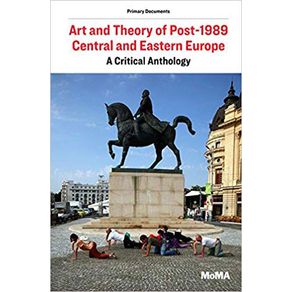The fall of the Berlin Wall and the ripple effects felt over the following years from Bucharest to Prague to Moscow demarcate a significant moment when artists were able to publicly reassess their histories and question the opposition between the former East and the former West. Art and Theory of Post-1989 Central and Eastern Europe takes the pivotal political changes between 1989 and 1991 as its departure point to reflect on the effects that communism's disintegration across Central and Eastern Europe—including the Soviet Union's fifteen republics—had on the art practices, criticism, and cultural production of the following decades. This book presents a selection of the period's key voices that have introduced recent critical perspectives. Particular attention is given to the research and viewpoints of a new generation of artists, scholars, and curators who have advanced fresh critical perspectives and who are rewriting their own histories. Their examination of artistic practices and systems of cultural production proposes distinct outlooks for acting in the contemporary world while simultaneously rethinking the significance of the socialist legacy on art today. Art and Theory of Post-1989 Central and Eastern Europe is an indispensable volume on modern and contemporary art and theory from the region.



